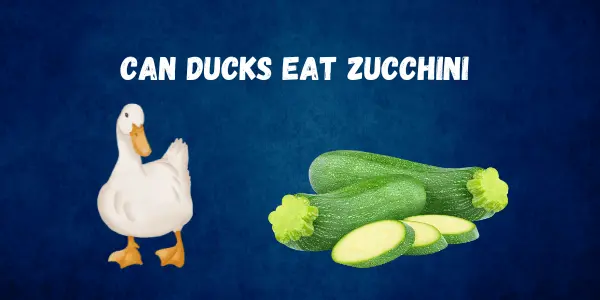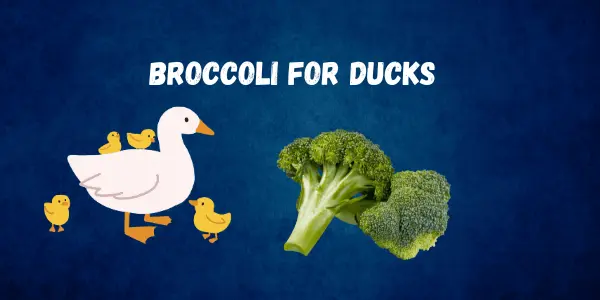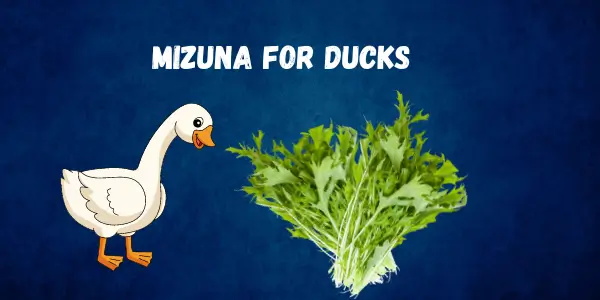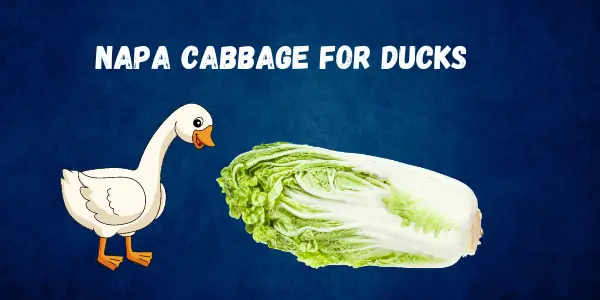Can Ducks Eat Bell Peppers? Everything You Need to Know
Published: 8 Sep 2024
Bell peppers are a common vegetable in many households, but are they safe for ducks? Ducks thrive on a balanced diet, and while they primarily eat grains, vegetables, and small insects, introducing new foods requires careful consideration.
Bell peppers are non-toxic and can be a healthy treat for ducks when served correctly. However, factors like preparation, portion size, and variety affect their nutritional impact. Below, we break down the safety, benefits, and different types of bell peppers for ducks.
Are Bell Peppers Safe for Ducks to Eat?
Yes, ducks can safely eat bell peppers, but some precautions are necessary. Bell peppers are part of the nightshade family, but unlike some related plants, they do not contain harmful levels of solanine. However, the stems and leaves of the bell pepper plant should be avoided, as they contain trace amounts of this compound.
Things to Consider Before Feeding Bell Peppers to Ducks:
- Remove Seeds: While not toxic, bell pepper seeds are hard to digest and may cause mild digestive discomfort.
- Cut into Small Pieces: Ducks lack teeth and rely on their gizzard to break down food, so small, bite-sized pieces are safer.
- Avoid Moldy Peppers: Rotten or moldy bell peppers contain toxins that can harm ducks.
Feeding bell peppers in moderation ensures ducks get the benefits without disrupting their diet.

Health Benefits of Feeding Bell Peppers to Ducks
Bell peppers provide essential nutrients that support a duck’s overall health. These vegetables are low in calories and rich in vitamins, making them a good occasional treat.
Key Nutrients in Bell Peppers:
- Vitamin C: Supports the immune system and helps prevent illness.
- Vitamin A (Beta-Carotene): Enhances eye health and feather quality.
- Vitamin B6 & Pantothenic Acid: Aid in metabolism and energy production.
- Dietary Fiber: Promotes healthy digestion when fed in small amounts.
- Water Content: Helps keep ducks hydrated, especially in hot weather.
Bell peppers should complement, not replace, a duck’s staple diet, which includes grains, greens, and proteins.
Can Ducks Eat Different Colors of Bell Peppers?
| Can Ducks Eat Different Colors of Bell Peppers? |
|---|
|
Bell peppers come in various colors, each with a slightly different nutrient profile. Ducks can eat all bell pepper varieties, but some offer more nutritional value than others. Can Ducks Eat Red Bell Peppers?Yes, red bell peppers are safe for ducks and are the most nutrient-dense variety. They contain higher amounts of beta-carotene and vitamin C compared to green peppers. These nutrients support eye health, feather maintenance, and immune function. Can Ducks Eat Green Bell Peppers?Green bell peppers are safe but slightly less nutritious than red ones. They contain lower levels of vitamin C and beta-carotene since they are harvested before ripening. However, they are still a hydrating and fiber-rich snack for ducks. Can Ducks Eat Yellow Bell Peppers?Yes, yellow bell peppers are a good middle-ground between green and red. They have a moderate amount of vitamin C and a sweeter taste than green peppers. Ducks can enjoy them in small amounts as part of a varied diet. Can Ducks Eat Orange Bell Peppers?Orange bell peppers are similar to yellow ones in sweetness and nutritional content. They provide beta-carotene, vitamin C, and hydration, making them a suitable snack for ducks. |
Can Ducks Eat Different Kinds of Bell Peppers?
Ducks can eat different types of bell peppers, including red, green, yellow, and orange varieties. Bell peppers are rich in vitamins A, C, and E, which support a duck’s immune system and overall health. However, not all forms of peppers are equally safe or beneficial. Below is a breakdown of different types and preparations of bell peppers for ducks.
Can Ducks Eat Bell Cooked Peppers?
Yes, ducks can eat cooked bell peppers, but it is not the best option. Cooking reduces some of the vitamin content, especially vitamin C. If you choose to feed cooked bell peppers, avoid adding salt, oil, or spices, as these can be harmful to ducks. Steaming or boiling them without additives is the safest way to prepare cooked bell peppers.
Can Ducks Eat Crushed Red Pepper?
Crushed red pepper comes from dried and ground chili peppers, which contain capsaicin. Ducks lack the receptors to feel the spicy heat, but consuming too much can still cause digestive upset. It is best to avoid giving ducks crushed red pepper, as it does not provide significant nutritional value.
Can Ducks Eat Crushed Red Pepper Flakes?
Similar to crushed red pepper, red pepper flakes are made from hot peppers, including cayenne and chili peppers. While ducks may eat them without showing discomfort, frequent feeding is not recommended. Instead, opt for fresh or raw bell peppers, which offer more nutritional benefits.
Can Ducks Eat Raw Bell Peppers?
Yes, raw bell peppers are the best choice for ducks. They retain all their nutrients and provide hydration. Chop them into small, manageable pieces to prevent choking. Ducks can safely eat all colors of bell peppers, but red ones contain the highest amount of beta-carotene, which supports eye health.
Can Ducks Eat Bell Pepper Seeds?
Bell pepper seeds are safe for ducks to eat. They are not toxic, and ducks can digest them without issues. However, the seeds have little nutritional value, so they should not replace other nutrient-rich foods in a duck’s diet.
Can Ducks Have Sweet Bell Peppers?
Yes, ducks can eat sweet bell peppers. Bell peppers are naturally sweet, especially the red and yellow varieties. They are a good source of antioxidants and fiber. Feed them in moderation as part of a balanced diet to avoid digestive issues.
Can Baby Ducks Eat Bell Peppers?
Yes, baby ducks can eat bell peppers, but they should be introduced gradually. Since ducklings have developing digestive systems, finely chopped or mashed bell peppers are easier for them to consume. Bell peppers should only be a small part of their diet, which should be primarily composed of high-protein starter feed.
How to Serve Bell Peppers to Ducks Safely
Bell peppers are a nutritious treat for ducks, but proper preparation is important to ensure safety. Ducks have small beaks and lack teeth, so cutting and serving methods matter.
Proper Way to Cut Bell Peppers for Ducks
Cut bell peppers into small, bite-sized pieces to prevent choking. Remove the core and stem, as these parts are tough and difficult for ducks to eat. Thin strips or small cubes work best. Softening raw peppers by finely chopping them can make them easier for younger ducks to consume.
Should You Remove the Seeds?
Bell pepper seeds are not toxic and can be eaten by ducks. However, they have little nutritional value. Some ducks may ignore them, while others may eat them without issue. If serving bell peppers regularly, removing the seeds can make the meal more digestible.
How Often Can Ducks Eat Bell Peppers?
Bell peppers should be given in moderation, making up no more than 10% of a duck’s diet. Feeding ducks bell peppers 2-3 times a week is a good balance. Overfeeding can displace more essential foods like grains, leafy greens, and protein sources. Ducks need a varied diet for optimal health.
Risks and Precautions When Feeding Bell Peppers to Ducks
| Risks and Precautions When Feeding Bell Peppers to Ducks |
|---|
|
While bell peppers are generally safe, there are some precautions to consider before feeding them to ducks. Are There Any Toxic Parts of the Bell Pepper Plant?The bell pepper fruit itself is safe, but the leaves, stems, and unripe green parts of the plant contain solanine, a natural toxin found in nightshade plants. Ducks should not eat bell pepper plants, as solanine can cause digestive distress or toxicity in high amounts. Potential Digestive Issues and Overfeeding ConcernsBell peppers are high in water content, which can lead to loose droppings if fed in excess. Additionally, feeding only bell peppers may cause nutritional imbalances. Ducks need a mix of grains, proteins, and vegetables to maintain proper health. |
How Bell Peppers Compare to Other Duck-Friendly Foods
Bell peppers are a nutritious treat for ducks, but how do they compare to other common duck-friendly foods?
- Bell Peppers vs. Leafy Greens – Leafy greens like romaine lettuce, kale, and dandelion greens provide more fiber and calcium, which are essential for egg-laying ducks. Bell peppers, on the other hand, offer higher vitamin C and beta-carotene.
- Bell Peppers vs. Fruits – Ducks enjoy fruits like berries, apples (without seeds), and melons, which provide natural sugars and hydration. Bell peppers have less sugar but still provide hydration and vitamins.
- Bell Peppers vs. Grains – Grains such as cracked corn, oats, and rice provide more energy and carbohydrates than bell peppers. While grains should be a staple in a duck’s diet, bell peppers can be an occasional supplement.
FAQs – Ducks Have Bell Peppers?
Yes, geese can eat bell peppers just like ducks. They provide similar nutritional benefits and can be fed in small, chopped pieces. However, just like with ducks, avoid feeding geese bell pepper leaves, stems, or moldy peppers.
Yes, ducks can eat bell peppers in the winter. In colder months, ducks need more energy-rich foods, but bell peppers can still provide vitamins and hydration. Since bell peppers have high water content, pair them with grains, corn, or protein sources to help ducks maintain body heat.
Yes, chickens and ducks can both eat bell peppers. They are safe for both species when served in small pieces. Just like with ducks, bell pepper leaves and stems should not be given to chickens. Providing a variety of vegetables ensures both birds receive a balanced diet.
No, ducks should never eat moldy or rotten bell peppers. Mold contains harmful toxins that can cause digestive upset, respiratory issues, and even poisoning. Always feed fresh, ripe bell peppers and discard any that show signs of spoilage.
Conclusion: Should You Feed Bell Peppers to Your Ducks?
Bell peppers are a safe and nutritious treat for ducks when fed in moderation. They provide vitamins A, C, and E, hydration, and antioxidants. Raw bell peppers are the best option, while cooked or chopped pieces can also be offered. Avoid feeding bell pepper stems, leaves, or moldy peppers.
For a balanced diet, bell peppers should be one of many vegetables included alongside grains, leafy greens, and protein sources. Feeding a variety of foods ensures ducks stay healthy and active.

- Be Respectful
- Stay Relevant
- Stay Positive
- True Feedback
- Encourage Discussion
- Avoid Spamming
- No Fake News
- Don't Copy-Paste
- No Personal Attacks

- Be Respectful
- Stay Relevant
- Stay Positive
- True Feedback
- Encourage Discussion
- Avoid Spamming
- No Fake News
- Don't Copy-Paste
- No Personal Attacks





